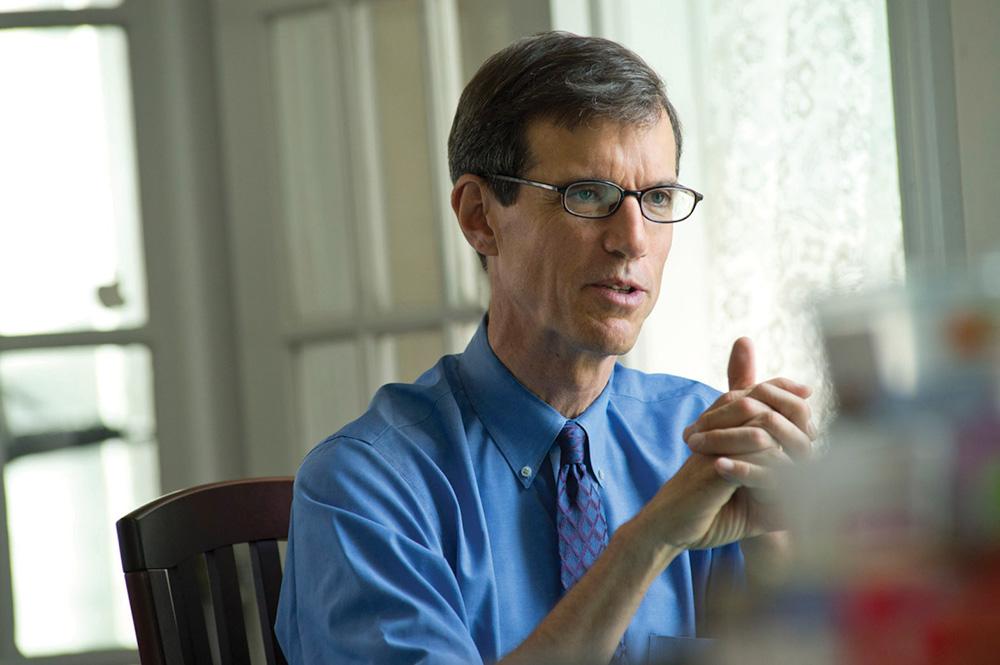When a Massachusetts State Senate seat opened up in the special election in January 2012, William Brownsberger was “immediately interested” in the position.

COURTESY OF WILLIAM BROWNSBERGER
“It’s a great opportunity to serve the public,” he said.
Now, Brownsberger has served in the Massachusetts State Senate for 10 years as president pro tempore. He is one of the candidates running unopposed in the Boston area for the 2022 general election, ten years after his initial appointment.
Five of the 12 positions on the Suffolk County ballot this year have only one option for voters. These candidates, along with Brownsberger, are all Democrats — the Suffolk County Sheriff the Massachusetts House of Representatives incumbent.
These incumbents have been in office for as few as one year, such as Hayden, to as many as 23 such as Devaney, who has held her post since 1999. As a member of the Governor’s Council, Devaney is one of eight councillors who approve appointments, pardons and judicial nominations.
Devaney said in an interview that although she is unopposed in the general election, she has run against 21 opponents in her 23 years. She also said she had a tough Democratic primary, where her opponent Mara Dolan ran a “hurtful” and “negative” campaign against her.
“Yes, I won the election, and I’m grateful,” she said. “But where do I go now to get my good name back?”
Despite the primary, Devaney said the position is important to her and she has “represented the people” and not “left the stone unturned.”
“I do think that one person can make a difference,” Devaney said.
Shauna Shames, a visiting associate professor of political science at Boston University, said that one reason some candidates remain unopposed is that it is an “uphill battle” for potential challengers to beat incumbents.
“We have made running for office extremely costly,” said Shames. “There’s all kinds of costs to your time, psychologically, to your family, financially.”
Shames said these factors make competitors “rationally deterred” from running for office.
“It takes the wind out of the sails of challengers,” she said.
Devaney said that the Boston area is also heavily Democratic. According to the Secretary of the Commonwealth of Massachusetts, around 1.5 million voters in Massachusetts registered as Democrats, as opposed to the roughly 437,000 registered Republicans. There are also around 2.9 million unenrolled voters.
Brownsberger was unopposed in both the primary and general election.
“I’d like to think … that people overall feel that they’re okay with the representation they’re getting,” he said. “They’re even happy with the representation they’re getting… one never stops trying to communicate with one’s district.”
Shames said older incumbents need to keep track of what is important to the public because younger challengers tend to be “far more racially and ethnically diverse.”
“It can feel like you’ve got these out of touch, older people who have different concerns than you,” she said
In terms of policies, Devaney said it is important that the public has access to the governor’s council hearings on nominations.
“I have wanted to have hearings streamed out to people so that people could see who the governor is appointing, see the hearing, see the person nominated,” she said.
Brownsberger said that this term, he wants to put a special focus on climate change.
“This is the decade where, from a climate perspective, we have to really put our shoulder to the wheel,” he said.
Devaney and Browsberger both agreed that the criminal justice and prison system need reform.
“There’s inmates that are dying, they’re not getting the medical help that they need,” she said.
Devaney said she is the only council member who meets with every potential judge.
“I’ve met with every nominee, and I really get to know them,” Devaney said. “I want to know the whole person.”
Shames said some incumbents are “terrific representatives” who are dedicated to their position and have the “seniority” to make things happen.
“They can really help their constituents, do constituency service,” she said. “They’re good at it.”
Devaney said she continues to come back to the Governor’s Council because she knows how important the work is to the public. She initially ran for office after her friend went to court seven times over a violent stalker, and the judge gave the stalker a $200 bail.
“Two weeks later, she was dead,” she said. “All these people that we vote on affect you or someone in your family.”
Brownsberger reiterated Devaney’s sentiment. He continues to run, even if some people “don’t know my name,” because he wants to advocate for citizens.
“I do that 12 months a year, every year,” he said.















A wonderful article. Very clearly outlines the situation.